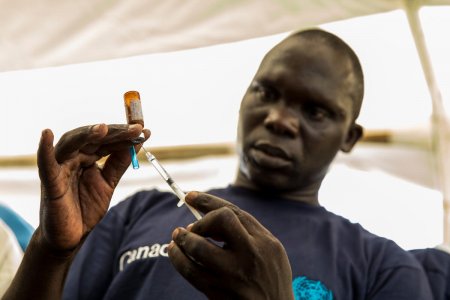
Personnel and infrastructure established through the polio eradication programme, with their extensive experience in disease surveillance and responding to outbreaks and other humanitarian emergencies and with trusted outreach networks in the most underserved communities, are once again proving their value during the COVID-19 pandemic as highly skilled contributors to national public health capacities.
National health programmes in the African, South-East Asia and Eastern Mediterranean regions of the World Health Organization (WHO), regions where the Global Polio Eradication Initiative (GPEI) has its largest footprint, are relying on polio assets to bolster public health capacities and to help to prepare for the long-term recovery and future resilience that will be needed after the pandemic.
The COVID-19 pandemic highlights the urgent need for robust and systematic implementation of plans for the integration of assets and functions so far supported by GPEI into national health systems. As the world reaches closer to polio eradication, resources for the polio programme will decline, putting this valuable network at risk. National governments and development partners have a duty to ensure that sufficient resources are made available to recover from the economic, social and health consequences of COVID-19 and to build robust public health emergency preparedness and response systems to improve countries’ resilience.
The critical role that polio assets have played in tackling multiple health emergencies and in supporting immunization activities, coupled with their contributions in responding to the COVID-19 pandemic and the potential role they can play in the recovery phase, demonstrate the need to sustain these capabilities to advance national and global health security.
Source: WHO







